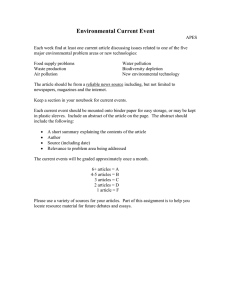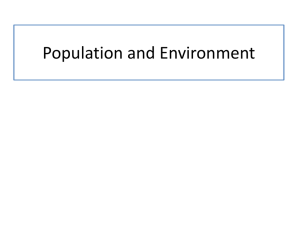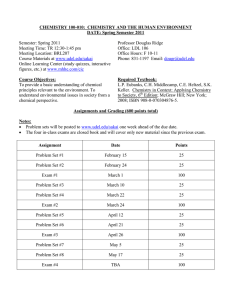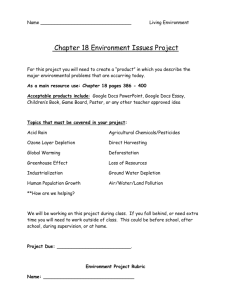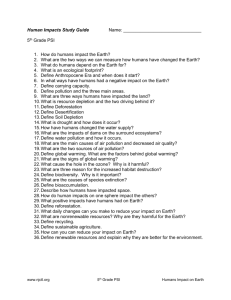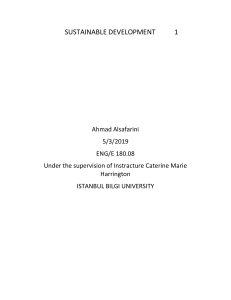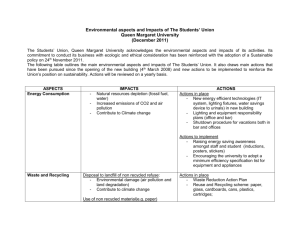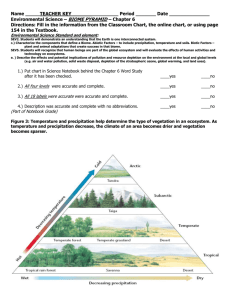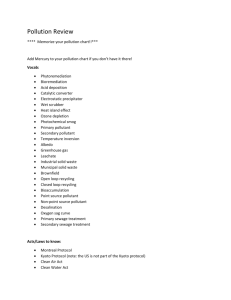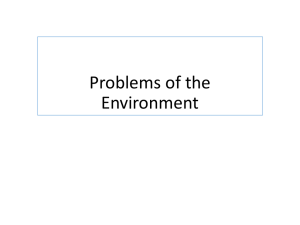CHART: Urban Land Use, C.14 Student Copy
advertisement
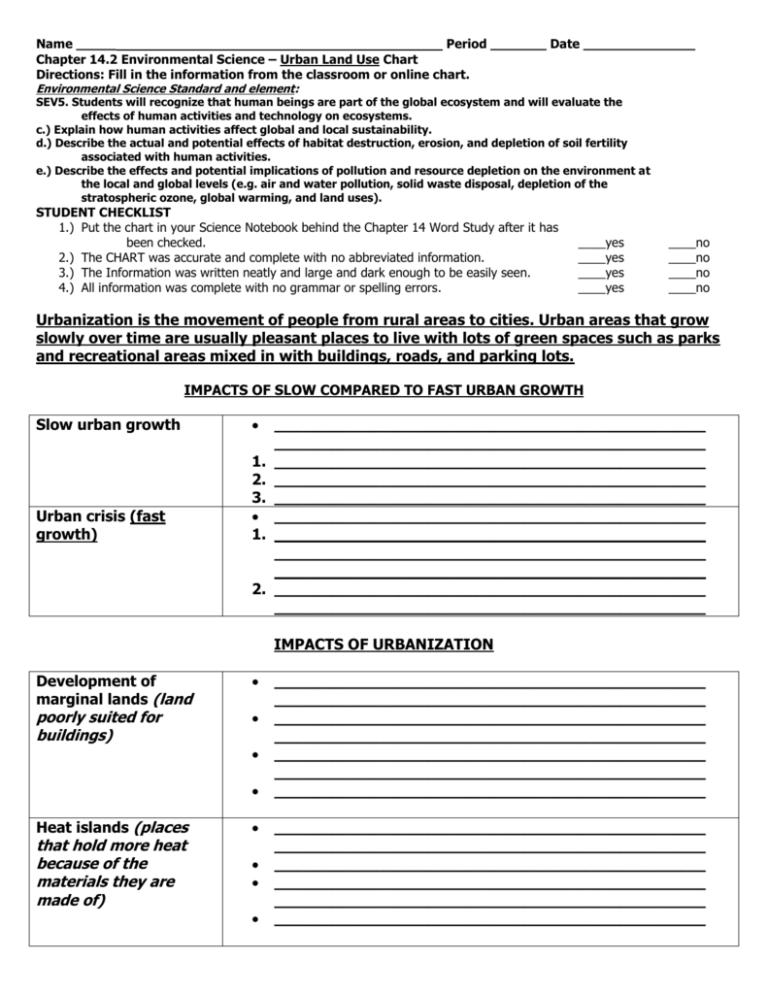
Name _____ Period _______ Date ______________ Chapter 14.2 Environmental Science – Urban Land Use Chart Directions: Fill in the information from the classroom or online chart. Environmental Science Standard and element: SEV5. Students will recognize that human beings are part of the global ecosystem and will evaluate the effects of human activities and technology on ecosystems. c.) Explain how human activities affect global and local sustainability. d.) Describe the actual and potential effects of habitat destruction, erosion, and depletion of soil fertility associated with human activities. e.) Describe the effects and potential implications of pollution and resource depletion on the environment at the local and global levels (e.g. air and water pollution, solid waste disposal, depletion of the stratospheric ozone, global warming, and land uses). STUDENT CHECKLIST 1.) Put the chart in your Science Notebook behind the Chapter 14 Word Study after it has been checked. 2.) The CHART was accurate and complete with no abbreviated information. 3.) The Information was written neatly and large and dark enough to be easily seen. 4.) All information was complete with no grammar or spelling errors. ____yes ____yes ____yes ____yes ____no ____no ____no ____no Urbanization is the movement of people from rural areas to cities. Urban areas that grow slowly over time are usually pleasant places to live with lots of green spaces such as parks and recreational areas mixed in with buildings, roads, and parking lots. IMPACTS OF SLOW COMPARED TO FAST URBAN GROWTH Slow urban growth Urban crisis (fast growth) 1. 2. 3. 1. 2. _____________________________________________ _____________________________________________ _____________________________________________ _____________________________________________ _____________________________________________ _____________________________________________ _____________________________________________ _____________________________________________ _____________________________________________ _____________________________________________ _____________________________________________ IMPACTS OF URBANIZATION Development of marginal lands (land poorly suited for buildings) Heat islands (places that hold more heat because of the materials they are made of) _____________________________________________ _____________________________________________ _____________________________________________ _____________________________________________ _____________________________________________ _____________________________________________ _____________________________________________ _____________________________________________ _____________________________________________ _____________________________________________ _____________________________________________ _____________________________________________ _____________________________________________ URBAN PLANNING Land-use planning GIS (geographic Transportation planning Open Space information center) __________________________________________ __________________________________________ __________________________________________ __________________________________________ __________________________________________ __________________________________________ __________________________________________ __________________________________________ __________________________________________ __________________________________________ 1. __________________________________ 2. __________________________________ 3. __________________________________ ___________________________________________ ___________________________________________ ___________________________________________ 1. __________________________________ 2. __________________________________ 3. __________________________________ 4. __________________________________ __________________________________ ___________________________________________ ___________________________________________ 1. __________________________________ __________________________________ __________________________________ 2. __________________________________ 3. __________________________________ __________________________________ 4. __________________________________ __________________________________
